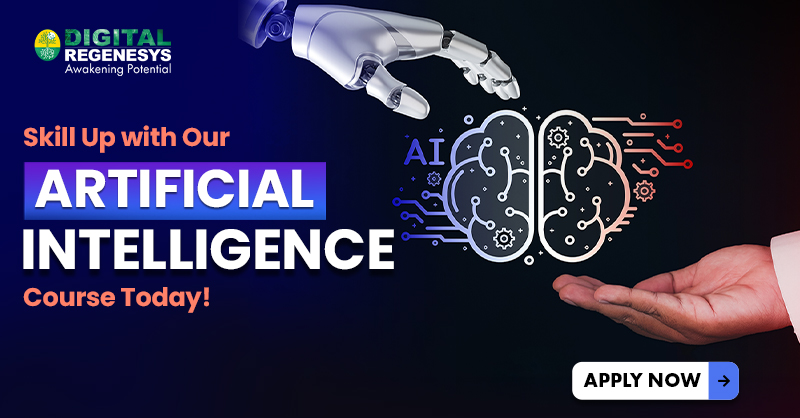7 Best Programming Languages for AI Development

Artificial Intelligence (AI) has become a tool across industries, from finance and healthcare to education and business. Behind every AI solution lies a programming language that helps developers create intelligent systems capable of learning, reasoning, and decision-making. With so many languages available, students, beginners, and even working professionals often wonder: Which is the best programming language for AI development?
The answer is not simple, because each language has unique strengths. Some excel in data analysis, others in speed and performance, and some are easier to learn for beginners. Choosing the right one depends on your project goals, industry needs, and long-term career plans.
In this article, we will explore the 7 best programming languages for AI development, explain their use cases, and help clear up common confusion about which language to learn.
Top Programming Languages for AI
There are many programming languages used in Artificial Intelligence, but only a few have proven to be reliable, efficient, and widely supported. Let’s look at the seven most important ones and understand their role in artificial intelligence.
1. Python
Python is the most widely used programming language for Artificial Intelligence and machine learning. It is known for its simplicity and readability, making it an excellent choice for both beginners and experts. Its popularity is due to the wide range of libraries and frameworks available for AI.
Here are the main reasons why Python stands out for AI development:
- Extensive Libraries and Frameworks: Python offers powerful libraries such as TensorFlow, PyTorch, Keras, and Scikit-learn. These frameworks simplify complex processes like deep learning, neural networks, and natural language processing.
- Ease of Learning: The syntax of Python is simple, similar to English. This allows developers to focus on problem-solving instead of struggling with complex coding rules.
- Strong Community Support: Python has one of the largest developer communities in the world. If you face challenges, you’ll find tutorials, guides, and forums to provide solutions quickly.
- Versatility: Python is not limited to AI; it is also used in web development, data analysis, automation, and more. This makes it a valuable language to learn for long-term career growth.
2. R
R is a language designed specifically for statistical computing and data analysis. In AI, it is especially useful for projects involving heavy data handling, predictive modelling, and advanced analytics.
Here are the key features of R for AI development:
- Powerful Data Visualisation: R allows developers to create detailed graphs and plots, helping them understand patterns and trends in data more effectively.
- Machine Learning Packages: R has packages like caret and randomForest, which make implementing AI models easier. These are highly valuable for predictive analytics.
- Statistical Analysis: AI often requires complex statistical methods, and R provides built-in functions to handle these tasks smoothly.
R is ideal for researchers, data scientists, and professionals working in fields where statistical accuracy is critical.
3. Java
Java has been a popular programming language for decades and continues to play a significant role in AI. It is widely used in large-scale enterprise applications where reliability and performance are essential.
The following are reasons why Java is a strong choice for AI:
- Scalability: Java’s ability to manage complex projects makes it perfect for building AI systems that need to handle large amounts of data.
- Frameworks for AI: Tools like Deeplearning4 and Weka support machine learning and deep learning in Java, allowing businesses to integrate AI into existing applications.
- Cross-Platform Compatibility: Java applications run on almost any device or operating system, making it easy to deploy AI solutions across different environments.
Java is often used in banking, finance, and e-commerce industries where stability and security are vital.
4. C++
C++ is not the easiest language to learn, but it is highly valued for AI projects that require speed and efficiency. Because AI often deals with huge amounts of data and requires quick processing, C++ is used where performance matters most.
Here are the advantages of C++ for AI:
- High Performance: C++ offers faster execution than many other languages, which is critical for real-time AI systems such as robotics or gaming AI.
- Memory Management: Developers can directly control system resources, which helps optimise AI algorithms for performance.
- Integration Capabilities: C++ can work alongside Python or Java, combining performance with ease of development.
C++ is often chosen for applications where milliseconds matter, such as autonomous vehicles or AI in financial trading.
5. Julia
Julia is a relatively new language, but it is gaining popularity for AI due to its combination of speed and user-friendly syntax. It is designed for high-performance numerical and scientific computing.
Some benefits of Julia in AI include:
- Fast Execution: Julia runs close to the speed of C++, making it ideal for heavy AI computations.
- Mathematical Strength: Julia is well-suited for linear algebra and numerical analysis, both of which are essential for AI algorithms.
- Growing Libraries: Julia’s AI ecosystem is still developing, but it already supports packages for machine learning and deep learning.
Julia is perfect for researchers and scientists who need precision and speed in their AI projects.
6. Lisp
Lisp is one of the oldest programming languages and has played an important role in the early development of AI. While it is less commonly used today, it still holds value in specific areas.
The following are reasons why Lisp is still relevant in AI:
- Symbolic Processing: Lisp is excellent for handling symbolic information, which is important in AI applications like natural language processing.
- Flexibility: Developers can quickly prototype ideas, making Lisp a useful language for research and experimentation.
- Historical Contribution: Many modern AI concepts originated from Lisp, making it a valuable language for those who want to understand the foundations of AI.
Although not as mainstream as Python or Java, Lisp still has a loyal following in academic and research communities.
7. Prolog
Prolog is a unique language based on logic programming. It is different from other AI languages because it focuses on facts, rules, and relationships.
Here are the features that make Prolog useful in AI:
- Rule-Based AI: Prolog is particularly strong in building systems that rely on rules and logical reasoning.
- Natural Language Processing: Because of its logic-driven structure, Prolog is often used in chatbots and voice recognition systems.
- Knowledge Representation: Prolog can represent complex relationships, making it valuable in AI systems that need decision-making capabilities.
Explore What are the Best AI Tools and Platforms? here!

How to Choose the Right Programming Language?
Selecting the right programming language for AI can feel overwhelming, especially with so many options available. The choice largely depends on your project needs, career goals, and how comfortable you are with learning new technologies.
The table below highlights the main factors to consider when choosing a programming language for AI:
|
Factor |
What to Consider |
Best Options |
|
Project Requirements |
Do you need speed, data analysis, or large-scale deployment? |
– Speed: C++ – Data Analysis: R / Python – Scalability: Java |
|
Learning Curve |
How easy or difficult is the language to learn? |
– Beginner-Friendly: Python – Challenging: C++ / Prolog |
|
Community Support |
Is there a large community for tutorials, tools, and solutions? |
– Strong Support: Python, Java – Smaller Base: Julia, Prolog |
|
Career Goals |
Which industry do you want to work in? |
– Finance & Enterprise: Java – Research & Statistics: R / Julia – Engineering & Robotics: C++ – General AI Careers: Python |
Read on What is the Future of AI? here!
Conclusion
Selecting the right programming language for AI development is not about finding the “best” one overall, but about matching the language to your project and career needs. Python dominates the field due to its simplicity and libraries, but other languages like R, Java, C++, Julia, Lisp, and Prolog have their unique strengths.
If you are ready to take your learning further, Digital Regenesys offers an Artificial Intelligence course designed to equip you with the practical skills needed to succeed in today’s AI-driven world.
Enrol today in the Artificial Intelligence course and gain the knowledge to create intelligent systems that make an impact.
Last Updated: 15 October 2025
